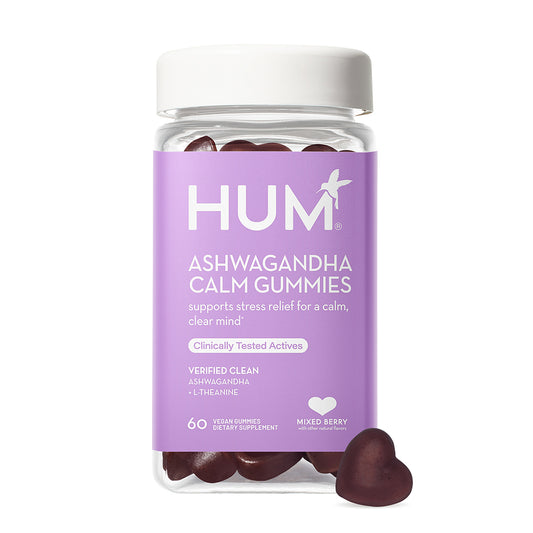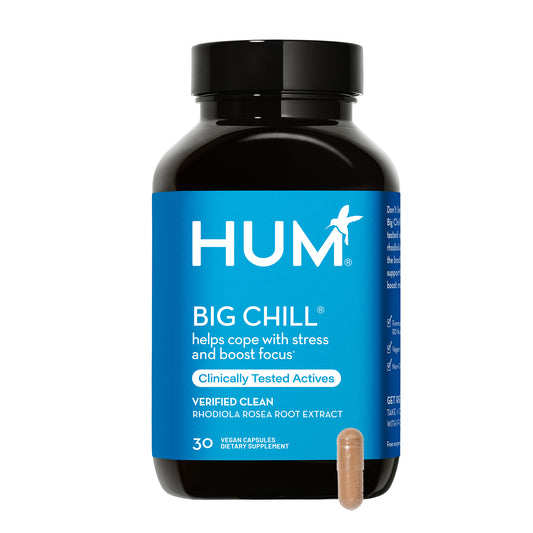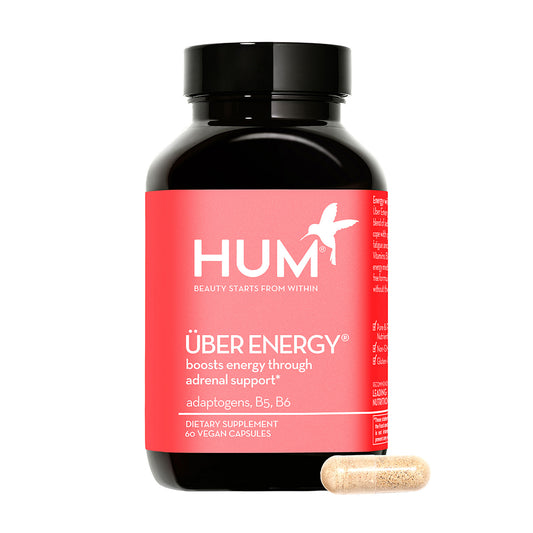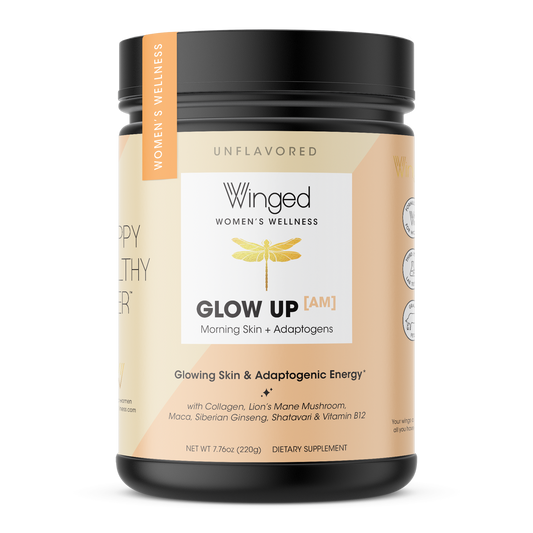The Versalie Ambassadors are a group of everyday people who are currently experiencing the ups and downs of the menopausal transition. They’ve been working with us to help build Versalie. Their experience and insights help us test our ideas, learn, and improve what we're creating. Their stories have the power to create real change.
We hope you see yourself in their stories — their symptoms, their highs and lows — and find that you’re not alone in this beautiful (but sometimes chaotic) phase of life.
Versalie Ambassador – Alicia, Age 50
Perimenopause, started at age 46
6+ symptoms, including brain fog, hyperpigmentation, memory loss, irregular and heavier periods, depression, and mood swings
When and how did you first realize you were in perimenopause?
The first sign that felt like I was probably in perimenopause is that I started experiencing a ton of brain fog. I’ve never had that in my whole life. I've always been sharp. And then I felt like I didn't even have a mind. I was having writer's block, and I write a lot of poetry. I couldn't do that anymore. The words I was thinking — I couldn’t get them out of my mouth. Then my memory started acting funny.
And then the emotions — as a woman, you already experience that when you're having a cycle. But I was frequently emotional, just crying for no reason. And I'm like, “What in the world is going on with me?”
"I didn't have the hot flashes. If I had started to have hot flashes, I would have been like 'Oh, here we go.'"
But I haven't had that. I had my own personal symptoms that were hard for me. It made me feel like, “What am I going to be able to do with this if I'm experiencing this all the time?”
And then I've also been bruising. I would wake up in the morning with a bruise and think how did I do it? I don't remember bumping myself.
I also noticed different skin patches here and there that had discoloration or hyperpigmentation, which a lot of African American women experience over time, and it can get worse as you age.
And then, of course, the bleeding on my cycle was heavier. I felt like I was having a period more often. I ended up developing fibroids and went through this whole depression thing. And that was kind of hard because I'm super chipper, super happy-go-lucky. So, when I went through depression, I knew something was off.
When I started experiencing all that stuff at once, and started researching for myself, I got scared to even think about what I was about to start experiencing. Because I witnessed my mom experiencing all those things, I started thinking, maybe this is happening to me. I remember that my mom would get forgetful, and she was angry one minute, sad the next.

You mentioned a few of your symptoms. Can you talk more about them and how they’ve affected you?
I'm in this different stage of life and I'm so used to being youthful and raising my children. And now it's like, what's next? What's next in this new body and this new mind and this new everything? And I feel like that is what I've been struggling with.
At one point, my children were my life. And I had all this energy, and I was that mom. Menopause was not even on my mind. But now here I am and I'm thinking of myself in a whole other way in how I approach every aspect of my life. It even affects how I date. It affects everything you do.
Being in perimenopause, I'm still getting a cycle. Normally it would be a 28-day cycle, but in perimenopause, it could be 40, it could be 30. For someone who is used to counting and knowing their cycle, this part is very hard — just planning out your life, planning your to-do list, planning any travel. It drives people like me, who like to plan stuff, crazy. I'm in that stage now.
Since being in perimenopause, I’ve been dating differently. I'm trying to be more open to who I'm dating, not just dating within my community. It’s hard dating because dating somebody my age — some of them look like they're like 70 and act like they're 70. And I'm like, “Is this what we got to look forward to — my menopause, his erectile dysfunction?" And with sex, because you’re in perimenopause, you don’t know when your period is going to come. And depending on who your partner is, they could react differently. That's always in the back of my mind.
Even though I feel like I'm aging gracefully, I just feel like my body is going through so many changes. There are days where I’m tired and it doesn’t have to do with eating poorly, it doesn’t have anything to do with any of it.
This stage of life looks so much different. I am kind of content, you know? I've had my home for over 20 years and I'm just having the time to just figure out what's next. And I'm trying to experience this whole thing. And because it’s perimenopause, I feel like this is just the beginning. I haven't even taken a deep dive into menopause yet.
"But at least I am not as scared as I used to be of entering menopause, because I feel like now, we have these tools. Now we have this community. Now you're not feeling alone."
What have you tried to do so far to manage your symptoms? Is there anything you’d like to try?
I still have a lot of brain fog. I'm getting better though because I feel like now that I'm aware of it, I'm actively making changes that are helping me to deal with it. With my poetry, I tried taking a class. I thought that if I take this class and the teacher's going to make me do assignments, they've got to be turned in. That helped because during class, the teacher would ask us to write and share it during class. I thought, “Wait, what? I've had writer's block for months, and now I'm supposed to write something on the spot and share it.” But that did help jump start it for me. I realized I can break through the block.
"For me, that opened the door to other alternative things I can do so that I don't have to do a lot of the invasive stuff that I really shy away from."
I started off trying to go the medical route and do the hormones. I was doing everything possible to stop having periods that were like 15 days long. And I ended up getting anemia. I was diagnosed and had to get iron infusions. My blood levels or counts went low, and the doctor was like, “I don't even know how you're getting around.” I thought everything that was happening to me was normal. I was in stores getting dizzy, blurred vision, everything. And I was just telling myself to get it together. I was sucking on tons of ice every day. I couldn't get through the day without ice.
I went to a doctor, and they prescribed some medicine for me. I took that for about a month, but it was causing so many different side effects (nausea, hair loss, back pain) and I didn't get a period that month. Then the following month my period started again, and the doctor said, “It shouldn’t have started, maybe we need to increase your dosage.” But I didn’t want a higher dose, so we tried a new medication. Then, suddenly, my clothes didn’t fit! I looked like I was swollen. I got on the scale — 40 pounds in 3 months. I told the doctor that I can't do this anymore.
They suggested lowering my dosage, but I really wanted to try something different. They weren't hearing me, so I got another doctor. That doctor sent me an 8-page document with all the surgeries you can do. I said, “So I'm supposed to read all these 8 pages and pick one of these surgeries?!
That led me to get yet another new doctor, and now here I am — 6 doctors later. I saw all OB-GYNs. I had one doctor who was a surgeon, and we had a lot of dialogue. She was very honest and said, “I'm sorry, I have a surgeon's brain. I just think about cutting.” And I was like, “Okay, I hear you. But let me find somebody else.”
I don't understand why the doctors can't work together to find solutions for you. You should have the choice of how you want to move forward with your own body. And I felt like with modern medicine, they weren't open to hearing other alternatives.
So that's when I did my own research and I ended up finding 3 different herbalists to talk to, and that began my journey on holistic options to alleviate my symptoms. My goal was for once and for all to get rid of my fibroids.
I started with my friend in California who's studying to be an herbalist and he taught me about different herbs. Another herbalist started telling me about yoni steaming. She said it could help with vaginal dryness and all the things you can experience down there. I don’t have vaginal dryness, but I still gave it a try. And then she has specific teas that were for fibroids. And that’s what ultimately helped me.
And the doctors did not believe me. They didn’t believe it until they saw an ultrasound that spoke for itself.
I started learning about how fibroids start because my doctors hadn’t told me. I wanted to know “How do they start? Where do they come from? What is happening? Why do they come back after you get a surgery?” From the time I was a child, I’ve always asked questions. I want to know.
I know it’s not for everybody. And I have a ton of friends who had the surgery. Some of them loved the fact that they had that option. You know, we're all different. And that's my thing. I wish that the modern medicine community and the holistic community could come together, and we could work collectively and find answers for all our community.
This is a personal story and does not constitute medical advice.

Have you talked to a medical professional about your perimenopause symptoms? How’d that go?
In relationships and in general, we women just want to feel seen, heard and understood. And we don't feel that way when we go to the doctor and are brushed off.
I'm on doctor number 7. I just started with her last month, and we're supposed to have a video appointment because I wanted to have another ultrasound to see if the last fibroid had passed. That’s why I got rid of my last doctor because she didn’t believe that I was passing fibroids — but I saw them come out of me. She said the only way to get rid of fibroids is to have the surgery or to shrink them down with hormonal therapies.
But I’ve also learned what questions to ask. It’s ok to ask:
- Do you have menopause experience?
- Do you have experience with treating fibroids?
- What do you normally recommend?
- Are you open to other suggestions as well and not just automatically go to hormone therapy or surgery?
When I have my video appointment, I have my list and I know what to ask her. Because I really want to work collectively with my doctor. And I have my herbalist team. You have teams for everything — finance team, health team, etc. That's all I'm trying to do — create my dream team to help me get through it.
Did anyone talk about menopause growing up? Did anyone talk to you about menopause before it happened?
When I was young, my mom was going through it, but never really talked about it. But I'm an empath — I feel everything and emotions from people. So, as she was experiencing it, I felt like I was experiencing something with her and I was like, “What is going on with her?” All her stuff came on right after my dad died. It felt like she literally hit menopause overnight. I don't know if they have any research out there that says stress can kickstart menopause, but I feel like that's what happened with her. As if overnight, she stopped having a cycle, started having hot flashes, and everything just came on her at once.
She thought she was kind of losing it. And that's partially because there was just a lot going on. They wanted her to do hormones. My mother has never really been the type that wants to take medications. She did her own research. I'm not sure what she ended up doing because she never shared it with me. And I didn't ask.
Even though my mom has always been a very good communicator, she didn't really know how to communicate that. So, I guess it was a good thing that I was an empath to feel all that, to know, and to recognize. And then to go do my own research. And that's how I gained knowledge because she didn't get that from her mom, who is still alive at 98.
My grandma helped raise me and she didn’t say anything either. My grandma didn't understand it. She comes from Louisiana. She's one of 10 kids and they grew up speaking French; she's Creole. She didn't have much of a formal education. She taught herself everything and learned through experience and having God as her guide throughout her life. She just didn’t know.
I asked her one day and she didn't know anything about it. She couldn’t remember when her last period was. She didn’t take anything. And I think that's what made my mom probably decide to not go the route her doctors wanted her to go to. We often look to our family to see what their experience was like.

What role have your family, friends, and partner played in your menopause journey? Have you seen any changes in those relationships?
I'm trying to get to the point where I talk about it more. Just talking about it helps. For a while I was a little embarrassed about it, to be honest. I was kind of embarrassed and I felt like I wanted to say certain things on my social media platform about it. But now I see some of my friends posting about their hot flashes, asking other people what they’re taking for it. My peers are going through all this stuff now and they're asking questions and they're like, “What are you guys taking?”, “What are you doing?”.
My oldest daughter is 29 and my youngest is 20. They do know what's going on with me. I don't want them to have an experience like I had. So now I talk to them about it, I tell them. The other day, they asked, “Mom, did you get your period this month?”
What I wish I knew: What would you tell your younger self about menopause if you could go back in time?
I would say don't be afraid of what your body is doing, don't be disconnected from the experience. Be open, share with your mother, aunt, sisters, friends.
"Get the resources you need and do the research you need to make the best decisions you can make for yourself. You are not alone, and you don't have to go through this alone."
Are there any misconceptions, myths, or stigmas about menopause that you want to debunk or clarify?
It's not a specific age that you begin menopause. I feel like there are people that I know are starting as early as their mid-thirties. “Menopause is for old people” — that's what everybody thought. You don’t go through menopause until you're old.
Everybody generalizes about just a few symptoms, you know, and everybody's supposed to just have those few symptoms. That's how you know you're in menopause. And that's not true either because everybody is different.
Also, what I'm going through now, I may not go through any of this in 7 years from now. I might be going through something totally different.
What advice would you give to others starting or going through the menopausal transition?
Grace, Grace, Grace...Give yourself plenty of grace. Your body is doing a lot right now, just like it did when you were going through puberty, having a menstrual cycle, growing a baby inside you, and now transitioning to the post years. Make sure you find a supportive doctor. Get all the support you need from friends that may be experiencing what you’re experiencing. Remember it's nothing to be embarrassed about — talk about it, so you can feel empowered.

What's an unexpected improvement in life now, as you’re aging and going through perimenopause?
I just feel free. I feel free to talk about it all. After getting over the whole embarrassing part about it, that opened doors for more things. That's where I am. I think that I'm coming out of the whole embarrassment thing and saying
“Hey, this is a 50-year-old woman. This is what that looks like.”
As far as my identity, I’m being more open to change and anything that's going to come my way because for so long my identity has been wrapped around my children. I’m a mom. I'm always going to be a mom but that can't be my number one identity now because I've raised my kids and now, they're in the world doing their life. I have to live my own life and have something I can identify with. I want to travel; I want to spend some time with other cultures. That's been a huge thing for me the last 5 years that I wanted to do.
I’ve noticed that changing little things has helped me feel better and feel empowered. During this season that we're all going through, we want to feel empowered about the decisions we're making. It sometimes feels like we almost can't make decisions because we don't trust ourselves because of what we're going through. Our bodies are doing things we didn't think they were going to do. And how hard is that? How sad is that to not trust yourself to decide? And that can go from the smallest thing to the biggest decision you have to make. That's the part that's hard.
But if you make these little changes that affect your life for the better, it'll help you keep getting that confidence. I’m starting to find that for myself. Making these small decisions, I feel good about them.
"And when I feel good about something, I share it. I love to share because I want my community to feel just as good as I feel. And they deserve to."
I feel like I have certain things to look forward to. Like, of course, freedom of sex, not getting pregnant, not having a cycle every month, or not knowing when it's coming.
I think one of the good things from going through this season I’m in is that I probably wouldn’t have found a holistic lifestyle. I wouldn’t have made those changes without having experienced this.
Why did you want to become a Versalie Ambassador?
I really like what the Versalie brand offers to women experiencing perimenopause and menopause that don’t have many answers as to what they are experiencing in their daily lives. This brand seemed like a blessing in disguise and a way for women in my age bracket to connect with others experiencing the same thing and talk about it without being embarrassed.
What’s your favorite part about being an Ambassador?
My favorite part about being an Ambassador is the wealth of knowledge we receive, the connections we make amongst the women that are experiencing what we are experiencing, a voice, an ear, and understanding, and so many resources.
What’s the biggest change you’ve made since joining as an Ambassador? What’s one thing you’ve learned about menopause that you think is critical to share with others?
The biggest change I've made since joining as an Ambassador and learning more about perimenopause and menopause is being more open about my experience and what I’m experiencing. I used to be embarrassed. It can be challenging because I don't look my age, nor do I act my age, so bringing it up to anyone, it can be a little awkward and challenging.
It's helped me embrace the sudden changes to my body and embrace this season more and to realize that I am not alone in this season. There is a community of women that know exactly how I feel. I’ve also been talking and sharing with friends. They ask me so many questions and come to me about various things and where to go and I feel like a little mini expert. I feel like I have a place for them to go with Versalie.
One of the things that I have learned that I think is critical to share is that although you're not alone in this season, your experience and how you cope can be different, you may choose to use such things as hormonal treatments to control your symptoms or you can choose to use a more holistic approach to handling your symptoms. Whichever you choose to use is okay. Never make someone feel that what they choose is wrong. Everyone is different and has a different story. Embracing the journey of knowledge and support is where we all want to be.








